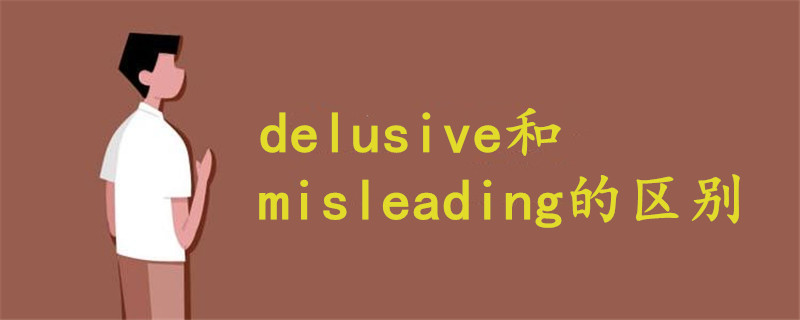delusive和misleading的区别:中文含义不同、词性不同、用法不同。delusive只作形容词,含义为“不真实的”、“虚假的”;misleading可作动词和形容词两种词性,含义为“误导”、“使误信”、“引入歧途的”。

一、delusive的含义及用法
delusive作为形容词,意为不真实的;虚假的。
例句:All goodness is delusive, don't be too proud of yourself either.
一切善法,也是虚妄的,你也不要太狂妄你自己。
Our thoughts may be delusive, but they can't be fictitious.
我们的想法可能是误导的,但不可能是虚构的。
This is a desire city which is full of delusive and mystical hue.
这是一个欲望的都市,充满迷幻神秘的色彩。
Most of the people realized that their scheme was simply a delusive snare.
大多数人都认识到他们的诡计不过是一个骗人的圈套。
二、misleading的含义及用法
1、作为动词时,意为误导;引入歧途;使误信。
例句:The article contains several misleading statements.
这篇文章有几处误导性说法。
Ministers must not knowingly mislead Parliament and the public.
大臣们不应该故意地误导议会与公众。
The ambassador called the report deceitful and misleading.
大使指称那份报告具有欺骗性和误导性。
Such case control studies can be misleading, however.
然而,这种「例对照」究有误导的嫌疑。
Reliance upon natural epidemics may be both time-consuming and misleading.
依靠天然的流行既浪费时间,又会引入歧途。
2、作为形容词时,意为误导的;引入歧途的。
例句:It would be misleading to say that we were friends...
说我们是朋友会让别人产生误解。
Which can mean two or more things or which can be misleading.
可指两件或两件以上事的言词或可能产生误导的言词。
In fact in some instances it might give rise to misleading results.
事实上,再有的情况下,它还可能造成误导的结果。










